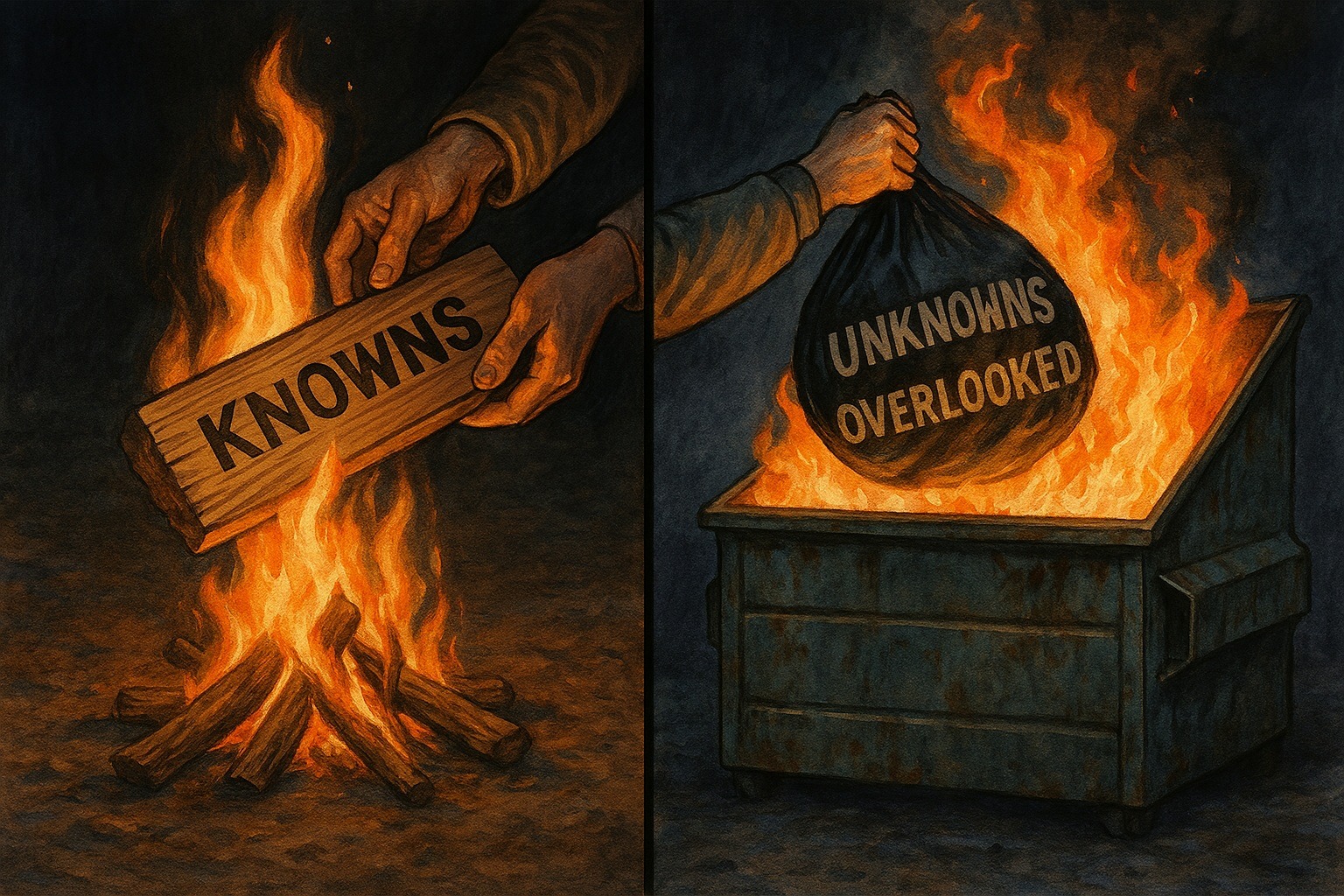Throughout my career, I’ve completed hundreds of projects—some successful, others complete disasters. I’ve worked on projects that were routine and others that were highly complex. Some even appeared simple at first but turned out to be far more complicated than expected. Through all of these experiences, the most valuable lesson I’ve learned is the importance of due diligence.
Every project begins in the pre-sales phase as a set of assumptions and expectations. Even with the most seasoned pre-sales engineers involved, there always seems to be a significant degree of uncertainty. These uncertainties are what we call “unknowns,” and they come in two forms. The first type includes things we know we don’t know—issues we’re aware of and can plan to investigate and resolve. The second type is more dangerous: the “unknown unknowns.”
Unknown unknowns can quickly derail a project and leave a nasty aroma in the atmosphere. The difference between managing a fire and dealing with a full-blown “dumpster fire” lies in what fuels it. When we anticipate a difficult phase in a project, we can set proper expectations with the client and prepare to manage the challenges. Fires can be controlled. Dumpster fires, on the other hand, are fueled by overlooked details—garbage, so to speak—often caused by skipping discovery or rushing to push the project out the door. The result is a fire that burns out of control and leaves a lasting stench.
Anyone who’s experienced a dumpster fire in a project knows exactly what I mean. That’s why diligence during the discovery phase—before any changes are made—is so critical. Your team should have a discovery process shaped by lessons learned from past projects. And because it’s based on experience, it should be treated as a living document.
Living documents are constantly evolving. I remember creating my first process document—I spent countless hours on it and thought, “Finally, I’m done!” But within two months, it needed revisions. That’s when I realized I couldn’t maintain these documents alone. I had to rely on my team to bring feedback, contribute to discussions, and help implement changes.
Team chemistry is everything. Without your team, it’s hard to move the needle on performance. Real progress happens when everyone is engaged in improving outcomes. The most important part of any team is its processes—and it takes a collaborative effort to build, maintain, and refine them to stay relevant and effective.

